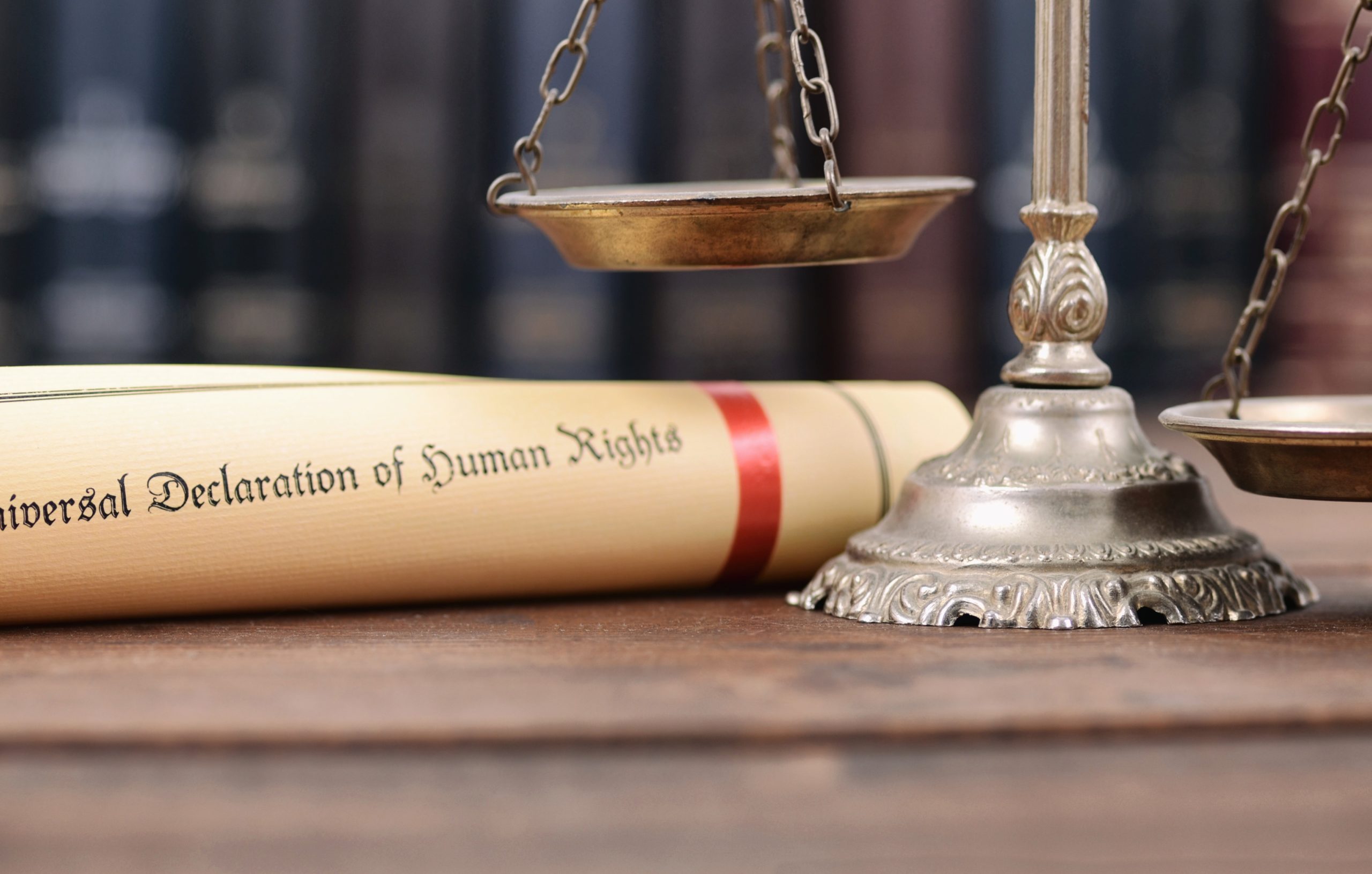 From Covid-19 to the U.S presidential election to Black Lives Matter, this year has led to new attention from business leaders on the gamut of human rights issues — employee health and safety, gender equality, anti-discrimination measures, just to name a few.
From Covid-19 to the U.S presidential election to Black Lives Matter, this year has led to new attention from business leaders on the gamut of human rights issues — employee health and safety, gender equality, anti-discrimination measures, just to name a few.
Simply put, 2020 has been the year when more companies and investors than ever became focused on the “S” in ESG.
All of this has been building for a while, but the pandemic and racial equality movements have accelerated these trends and brought into sharper focus what the future of social and human rights issues might look like for businesses.
Global brands are now seeking to mitigate their human rights risks as a way to maximize their market opportunities. Lawmakers have bridged partisan divides in an effort to keep human rights abuses out of global supply chains. And 2020 has witnessed a global trend toward mandatory human rights due diligence.
All of these developments and more evidence a worldwide movement toward increased corporate responsibility for upholding international human rights standards and norms. At the same time, these trends are also reshaping the human rights regulatory and compliance landscape that businesses will face moving forward.
With celebration of International Human Rights Day upon us, know this: Best practices related to human rights, social impact and sustainability have evolved greatly in 2020, moving from simply a moral imperative to a growing recognition of the importance and impact of the tie-in to the bottom line. Here are some of the related trends that business leaders can expect to face in 2021.
Major corporations have come under scrutiny recently for their perceived positions on the Uyghur Forced Labor Prevention Act, which would crack down on imports made with forced labor from persecuted Muslim minorities in China. The bill is one of the few issues in Congress right now with significant bipartisan support, passing the House by a vote of 406-3.
But some businesses have expressed concerns that it could damage global supply chains that are heavily reliant on Chinese exports. The Supreme Court has also recently heard oral argument in Nestle v. Doe and Cargill v. Doe I, which may determine the future of corporate liability under the Alien Tort Statute for violations of international human rights law.
Like it or not, legislation like this is a clear indication of where government regulators are moving with regard to overseas human rights abuses. Companies are going to have to pay even more attention to who they work with — and who those businesses supply from — than they have previously.
Human rights, sustainability and diversity, equity and inclusion (DEI) efforts have traditionally been siloed in corporations, but that is starting to change. Driven by the Black Lives Matter movement, in particular, and recognition by human rights practitioners that not enough attention had been paid to freedom from discrimination and right to equality, these agendas and goals are starting to come together within companies in an effort to address everything from hate speech, to responsible innovation to even diversity in product development.
At a structural level, the best practice is now to ensure a direct reporting line between these roles and the C-suite, including regular check-ins with the board, to facilitate a collaborative working relationship while building incentives that advance these agendas collectively.
When considering the ESG – Environmental, Social, and Governance – factors involved in the impact a business has on the world at large, the social aspects are getting increased attention and are directly related to human rights, risks and opportunities.
Prior to Covid-19 and Black Lives Matter, many companies tended to pay the most attention to environmental responsibility in their ESG efforts. But now we’re seeing a move toward social policies and risk mitigation, both by investors as well as consumers. Companies need to educate themselves on the implications of ESG as well as address the expectations that come with it.
The European Union is moving toward proposing mandatory human rights due diligence legislation in early 2021, which will be part of the EU’s Covid-19 recovery package and the European Green Deal. That would come on the heels of the French corporate duty of vigilance law and the Dutch child labour due diligence law, as well as single-issue diligence disclosure requirements in laws likes the California Transparency in Supply Chains Act, Australia’s Modern Slavery Act, and the UK Modern Slavery Act.
The next logical step that companies can expect in the effort to identify and mitigate potential human rights abuses could be mandatory human rights due diligence legislation. The time is now to incorporate these considerations into the corporate diligence processes and prepare for anticipated changes that could be coming as soon as 2021.
A natural result of the Covid-19 pandemic, employers are now putting plans in place to protect both their direct employees as well as their supply chains and other stakeholders. This includes everything from pandemic contingency planning, to emergency response processes, to employee safety protocols, all focused on minimizing the potential impact on the human side of the business. This was an easy area for companies to overlook before Covid, but those days are now behind us. The time is now for companies to review their long-term employee health and safety goals.
Corporations that overlook this new landscape of human rights concerns risk legal proceedings, regulatory fines and reputational damage, all of which could potentially mean lost shareholder value. And that might be the biggest human rights-related hurdle facing businesses in 2021: None of this is optional anymore.

Chief Executive Group exists to improve the performance of U.S. CEOs, senior executives and public-company directors, helping you grow your companies, build your communities and strengthen society. Learn more at chiefexecutivegroup.com.
0

1:00 - 5:00 pm
Over 70% of Executives Surveyed Agree: Many Strategic Planning Efforts Lack Systematic Approach Tips for Enhancing Your Strategic Planning Process
Executives expressed frustration with their current strategic planning process. Issues include:
Steve Rutan and Denise Harrison have put together an afternoon workshop that will provide the tools you need to address these concerns. They have worked with hundreds of executives to develop a systematic approach that will enable your team to make better decisions during strategic planning. Steve and Denise will walk you through exercises for prioritizing your lists and steps that will reset and reinvigorate your process. This will be a hands-on workshop that will enable you to think about your business as you use the tools that are being presented. If you are ready for a Strategic Planning tune-up, select this workshop in your registration form. The additional fee of $695 will be added to your total.

2:00 - 5:00 pm
Female leaders face the same issues all leaders do, but they often face additional challenges too. In this peer session, we will facilitate a discussion of best practices and how to overcome common barriers to help women leaders be more effective within and outside their organizations.
Limited space available.

10:30 - 5:00 pm
General’s Retreat at Hermitage Golf Course
Sponsored by UBS
General’s Retreat, built in 1986 with architect Gary Roger Baird, has been voted the “Best Golf Course in Nashville” and is a “must play” when visiting the Nashville, Tennessee area. With the beautiful setting along the Cumberland River, golfers of all capabilities will thoroughly enjoy the golf, scenery and hospitality.
The golf outing fee includes transportation to and from the hotel, greens/cart fees, use of practice facilities, and boxed lunch. The bus will leave the hotel at 10:30 am for a noon shotgun start and return to the hotel after the cocktail reception following the completion of the round.